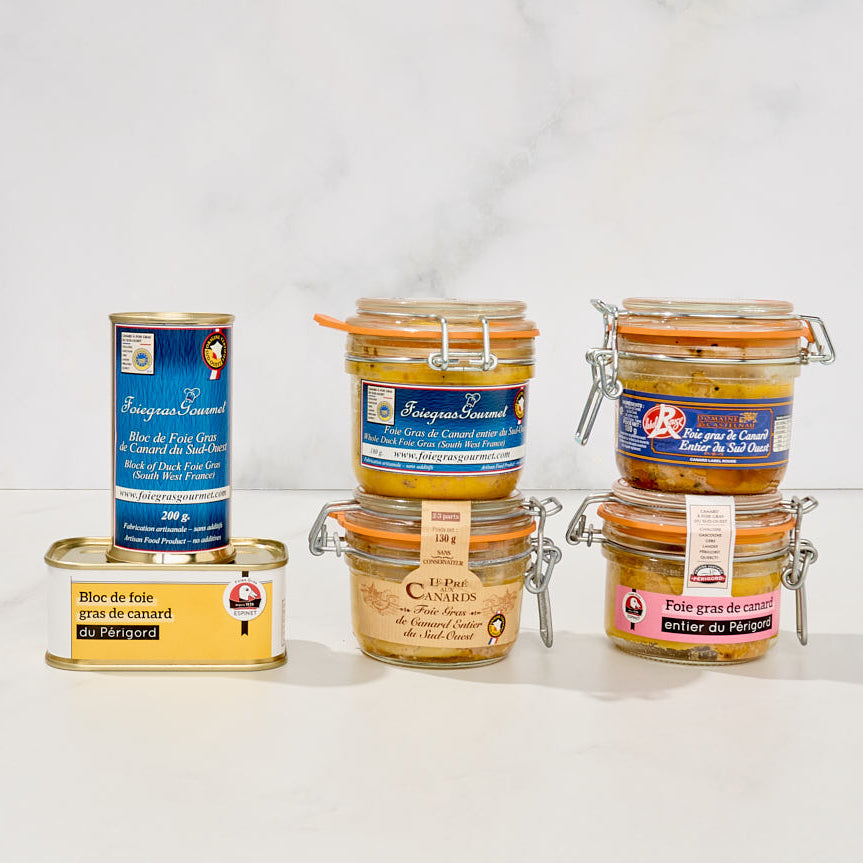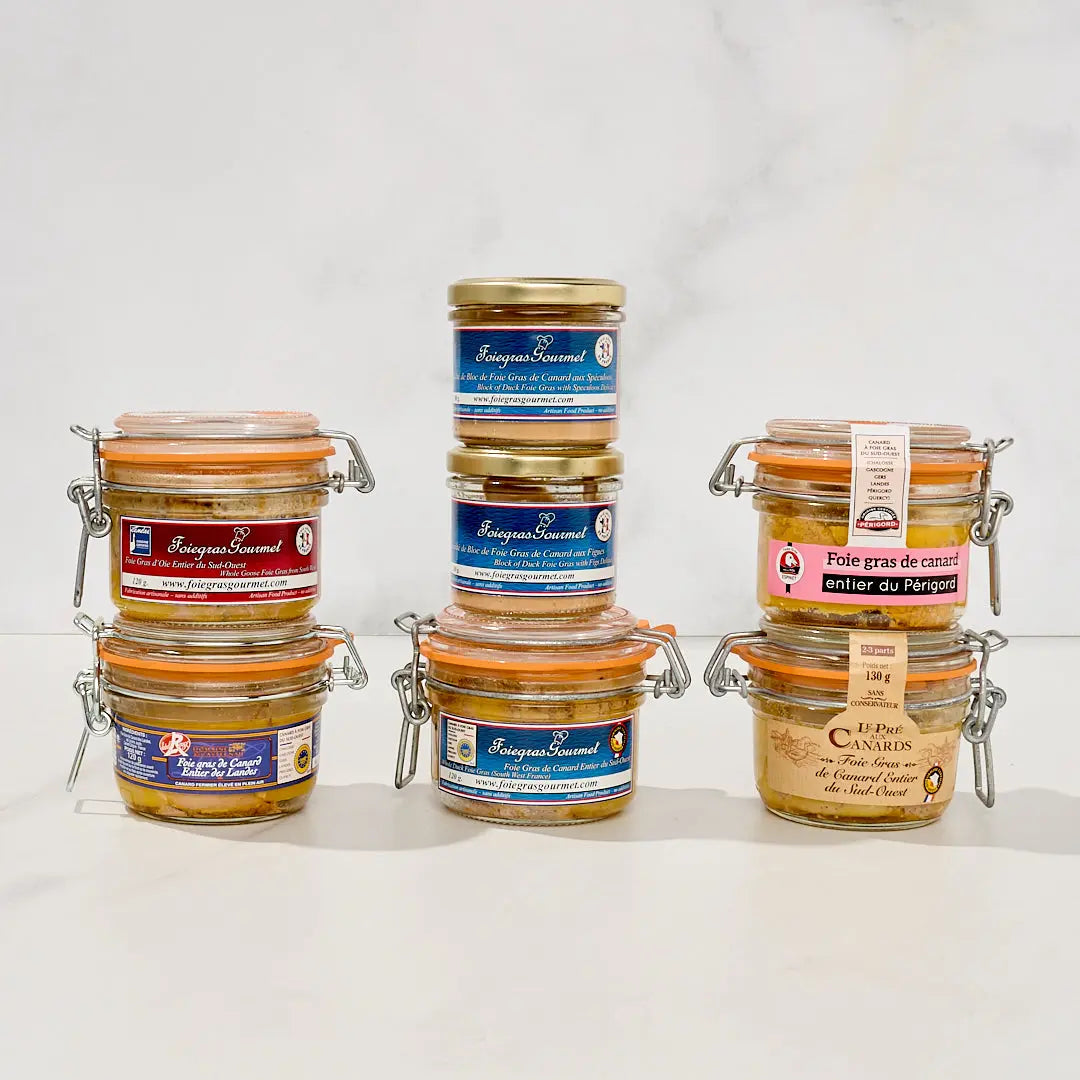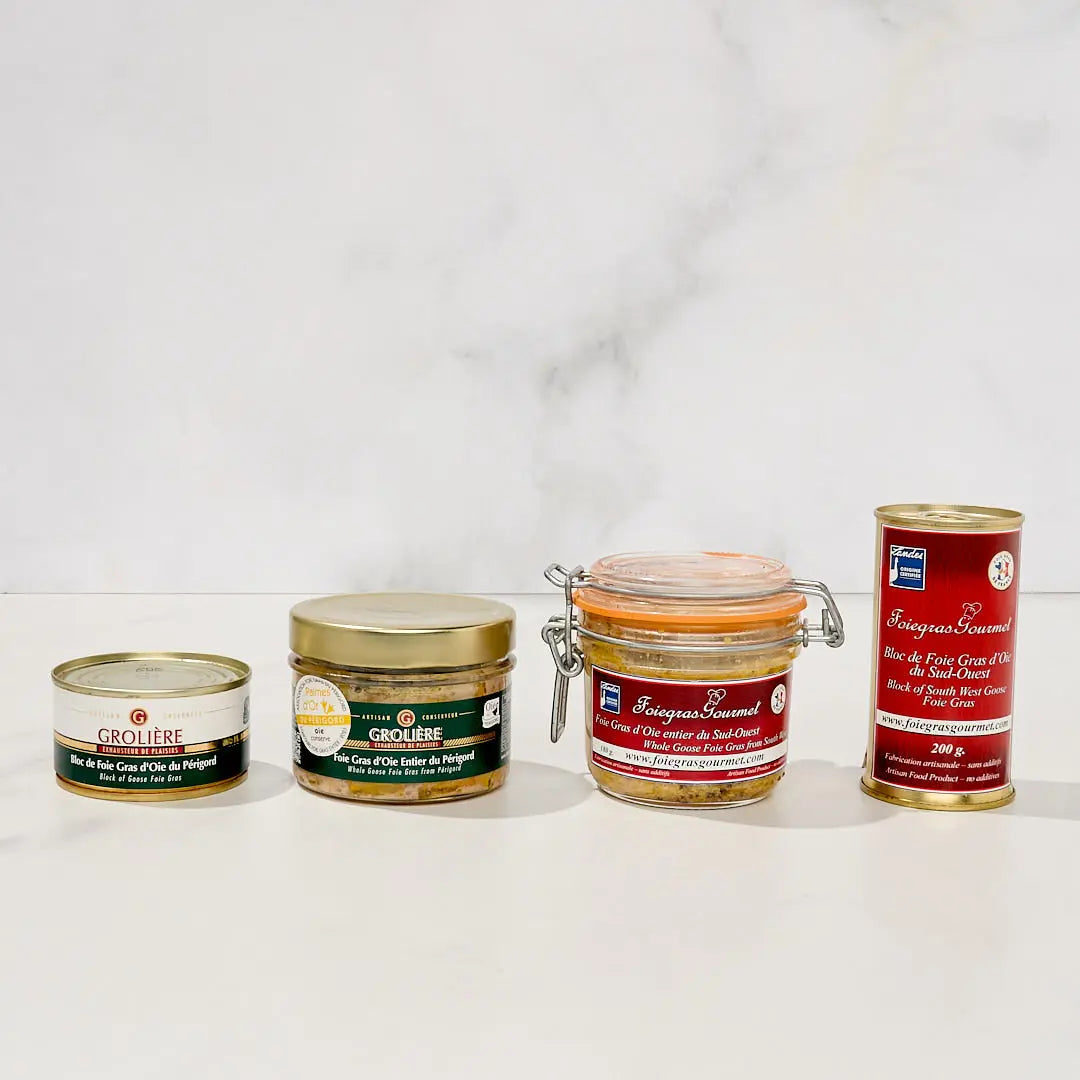Goose Foie Gras from Périgord: The foie gras of excellence
Goose foie gras has always been the favourite among connoisseurs, with its soft, delicate flavour. But for economic reasons, production has declined from 10% of the total foie gras produced fifteen years ago to less than 5% today.

Goose foie gras : good reasons not to be a cheap product
Geese lay many fewer eggs than ducks. In South-West France, a hen’s egg is five times cheaper than a duck egg but 50 times cheaper than a goose egg. And geese require more care as well as needing to be reared for longer. Goose foie gras is more expensive than its duck counterpart simply because the rearing of geese is more demanding.
In addition, ducks are easier to sell than geese in the South-West: they are cheaper and simpler to cook. Goose flesh is almost always used for rillettes, is roasted or preserved. While goose meat is more difficult to cook, by no means is it less flavoursome! Both goose and duck produce extremely fine meat, yet it is the goose which features more often on festive tables: goose very often replaces a traditional Christmas turkey in South-West France.
Goose foie gras : outsourcing production abroad for the purpose of cost-cutting
Over a period of about 30 years, the raising of geese in France has all but disappeared. This has resulted from the big industrial companies pushing for reductions in production costs and moving goose production to Central Europe where they can be raised more cheaply. Hungary now exports some 2,000 tonnes of foie gras each year. The geese are raised and then their livers are exported to France for packaging.
All too often, quality is compromised as a result of the producers in Hungary and Bulgaria being continually squeezed by the processors to cut costs, with them in turn under pressure from the hypermarket operators to deliver ever-lower prices for customers.

But have you ever seen foie gras which is labelled as “product of Hungary” or “product of Bulgaria”? Is it right that just because it is finally packaged in France that it can be called Alsace foie gras?
Foie Gras Gourmet goose foie gras is the finest of all foies gras. Renowned by connoisseurs for its delicacy and firmness, this foie gras is unanimously appreciated by gourmets.
Goose foie gras from France is coming back
A few years ago, in order to be able to produce high-quality goose foie gras, some Perigord producers came together to establish a way for Perigord goose to be recognised. Their aim was to establish a PGI (Protected Geographic Indication) for their products.

Assisted by the Dordogne and Aquitaine local authority, a test farm was established: The Coulaures Goose Farm. The objective was to recreate the best practice and recruit new farmers with an interest in raising geese. There was a desire to return to traditional means of rearing with open grass runs and longer rearing times.
There was also a wish to return to raising geese on small family-run farms – so different from the modern intensive set-ups.
If goose foie gras has become less familiar to us, it’s all down to costs – not flavour.












Ask questions on the topic of foie gras